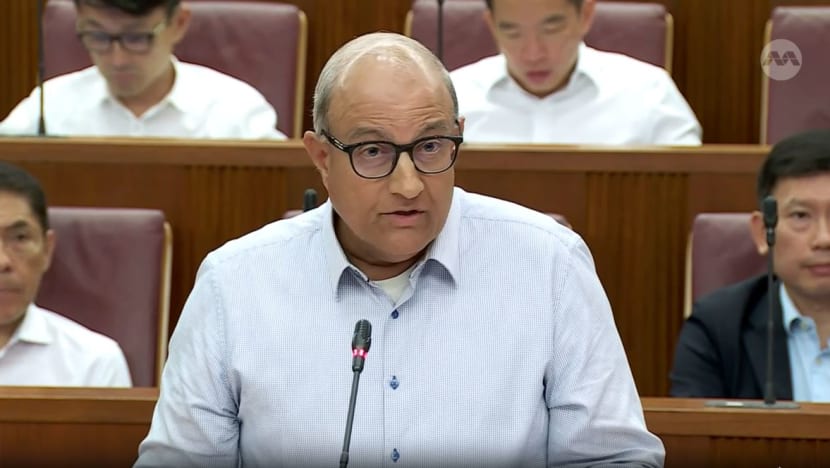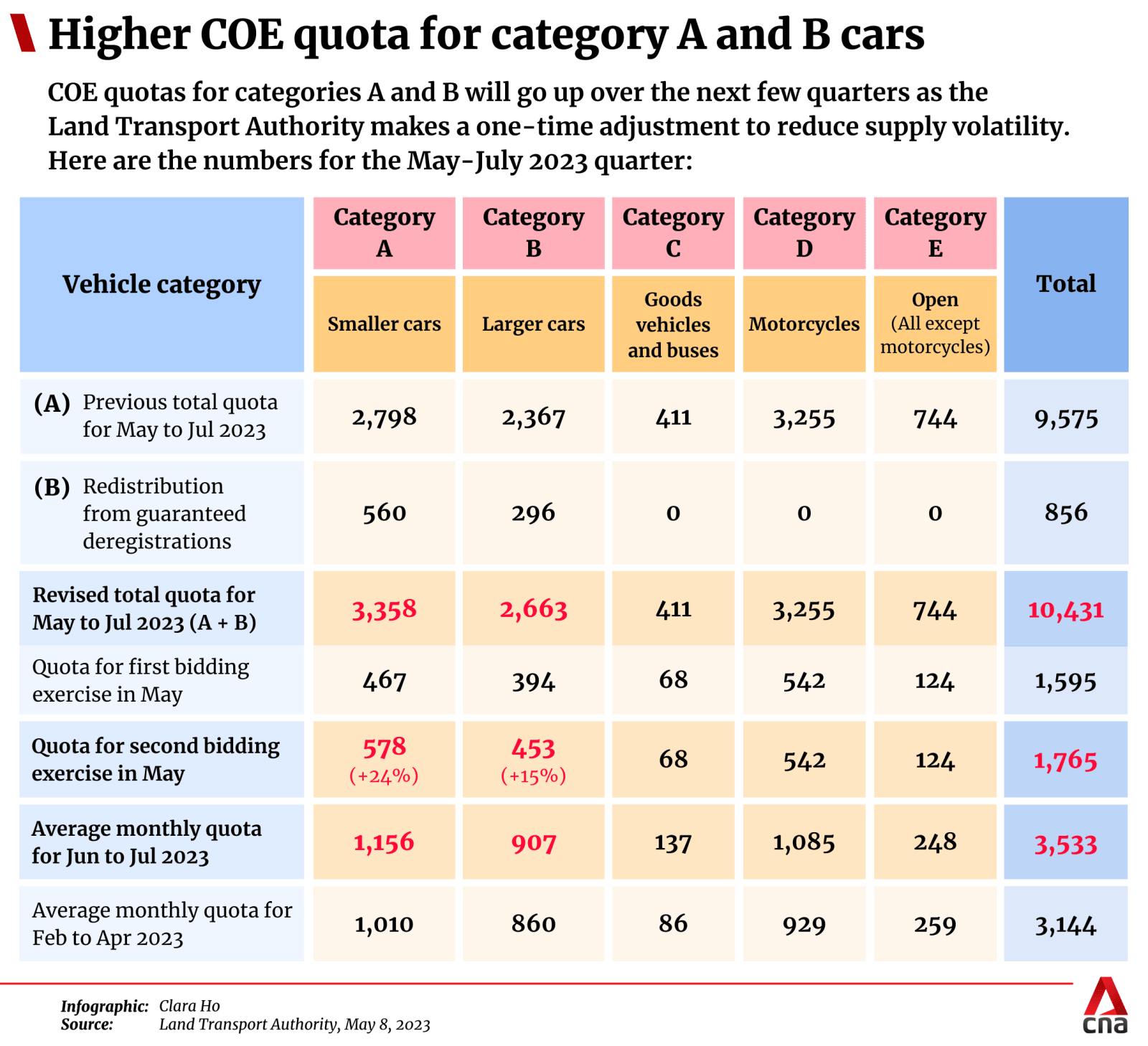With zero car-growth and rising incomes, COE prices will trend upwards: Iswaran
Singapore will prioritise pedestrians, cyclists and public transport users, and reduce the need for private cars, says Transport Minister S Iswaran.

Transport Minister S Iswaran speaks in parliament on May 8, 2023.
SINGAPORE: With Singapore’s policy of zero-growth in the car population and as household incomes rise, Certificates of Entitlement (COE) premiums are expected to trend upwards, said Transport Minister S Iswaran in parliament on Monday (May 8).
“Fundamentally, the COE prices reflect demand for a limited and falling supply of COEs,” Mr Iswaran said in a ministerial statement responding to parliamentary questions on the COE system.
He noted that demand for vehicles has remained "resilient", especially as the economy recovers after COVID-19. Incomes have also been rising over the long term, and the ratio of COE price to median monthly household income has fallen.
“As household incomes continue to rise in the coming years, coupled with our policy of zero-growth in the car population, we must expect the long-term trajectory for COE prices to be upwards,” said Mr Iswaran.
Even as he announced new measures to raise the COE quota for cars in categories A and B over the next few quarters, Mr Iswaran stressed that mass public transport is at the core of Singapore’s transport strategy and the country is moving towards a “car-lite” future.
“As we seek to improve the efficiency of the COE system with these measures that we have already undertaken over the years, we should not lose sight of our goal of becoming a car-lite society with accessible and inclusive transport for all Singaporeans,” he concluded.
Ten Members of Parliament had asked more than 20 questions about rising COE premiums, which have hit record highs in recent bidding exercises. Category A premiums for smaller cars, for instance, surpassed the S$100,000 mark in April.
A number of MPs asked about the reasons behind the rise in COE prices and the impact of demand from private hire companies. MPs asked if a cap can be imposed on the number of private hire cars, and if foreigners or households with multiple vehicles have driven up demand for cars.
MPs were also concerned that those who need cars, such as households with children and the elderly, as well as people who rely on cars for their livelihood, will be priced out.

CAR-LITE FUTURE
Mr Iswaran set the context by pointing out that Singapore has two key constraints when it comes to land transport - land and carbon emissions.
Roads occupy 12 per cent of land area for 7 million journeys a day, while the rail network, taking up less than 1 per cent of land surface, serves around 3 million journeys a day, he said.
The land transport system also accounts for 15 per cent of Singapore’s total domestic carbon emissions, and it must be reduced if Singapore is to achieve net-zero emissions by 2050.
Mr Iswaran said Singapore will prioritise pedestrians, cyclists and public transport users, and reduce the need for private cars.
“This is the ‘car-lite’ future that we envisage as we plan and redevelop our precincts,” said Mr Iswaran
Responding to the questions on COEs for private hire cars, Mr Iswaran said that for the last four years, the number of private hire cars has remained at about 10 per cent of the total car population and has averaged around 70,000 since 2019.
“While COE prices have been rising over the past several quarters, demand from PHC companies has in fact been moderating,” said Mr Iswaran.
The minister added that shared transport, including car-sharing services, allows for more efficient and inclusive use of roads, as compared with individually owned private cars. He thus cautioned against imposing any “arbitrary cap” on the private hire car population.
“That said, PHCs are a relatively new development ... and COVID-19 has caused some disruption in the market. We are studying this further to ascertain the effect of PHCs, if there is any impact, on the market,” Mr Iswaran said.
SMOOTHENING COE SUPPLY
Addressing questions on improving the COE system for both cars and motorcycles, Mr Iswaran pointed to how the system has been adjusted over time.
"On the whole, the system continues to serve our policy objective of efficiently allocating the limited supply of COEs," he said.
In response to questions from two MPs, Mr Iswaran said that the proportion of car COEs secured by foreigners remains low - at less than 3 per cent - and has not changed significantly over the years.
He also gave statistics about households that own multiple cars, saying that over the past decade, the proportion has been steadily declining from about 19 per cent of households in 2012 to less than 15 per cent today.
He said last November that of the 471,000 households that own cars, 12 per cent own two cars and less than 3 per cent own three or more cars.
Mr Iswaran explained that as COE supply is determined by car de-registrations in preceding quarters, which has been low of late, the Transport Ministry decided to introduce measures to reduce volatility in the quota.
Instead of considering just the preceding quarter, the ministry now uses the moving average of de-registrations in the four preceding quarters to compute COE quotas.
While he expects the COE supply to start increasing in the coming months as more cars reach the 10-year mark when owners consider de-registering their vehicles, LTA will also take steps to re-distribute the supply from five-year COEs due to expire in the next projected supply peak, to further reduce volatility.
“There will still be a degree of supply fluctuation due to historical factors and broader market conditions,” Mr Iswaran said.
“Second, the long term upward trend of COE prices due to rising incomes and zero vehicle population growth will not abate.”


















